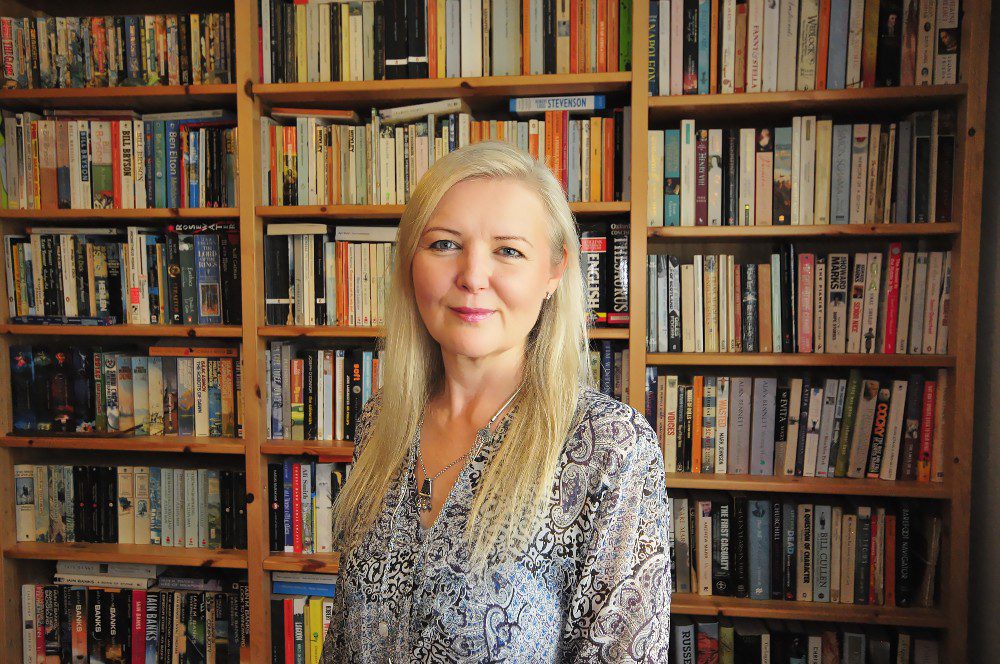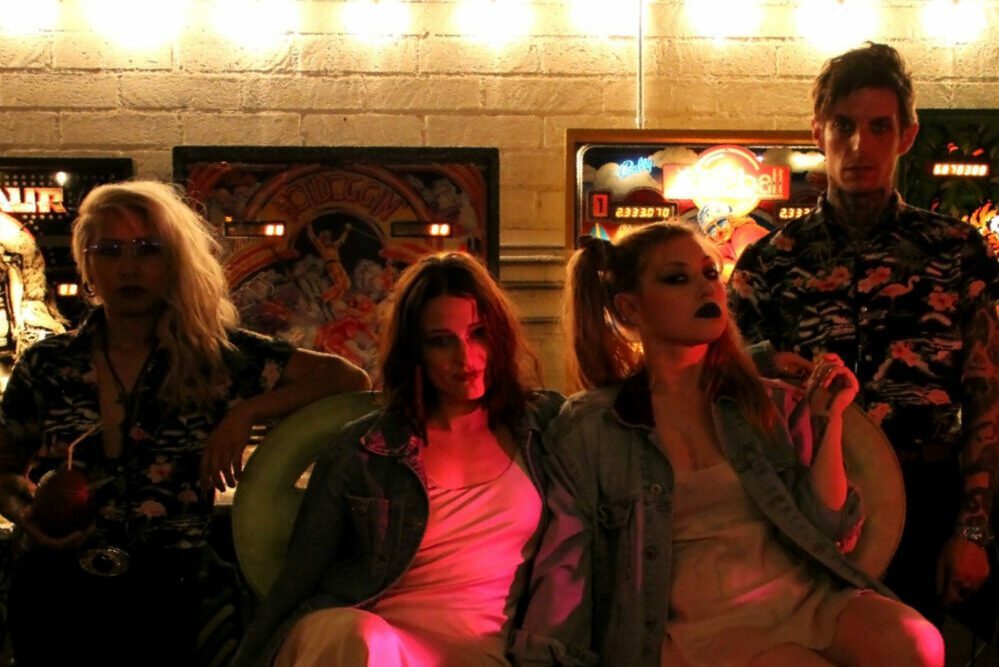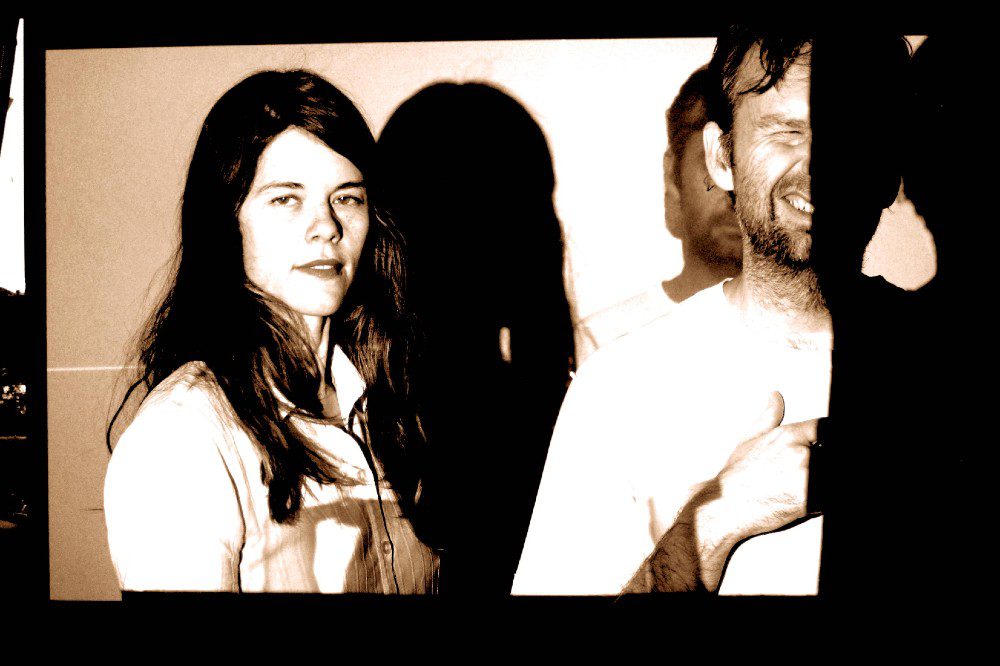

A recent report by the Australian Broadcasting Corporation’s youth radio station, Triple J, indicates that women are still underrepresented at almost every level of the music industry, including festival lineups, the boards of major music bodies, radio and at record labels. The only silver lining was that the gender pay gap has somewhat narrowed (though parity is still yet to happen) and there’s been an increase, too, in the number of women in management level at indie record labels in Australia.
There’s been broad acknowledgement that the pandemic has disproportionately affected women, who are largely responsible for housework, caring for children, home schooling and also caring for their parents. For single mums, in particular, the demands are magnified and their finances are likely to already be ravaged by the time they’ve taken off work to have a child, the expenses of raising a child alone and having to work part-time to accommodate caring for their child. It may seem to some that working in the music industry is not a place that is forgiving or accepting of women who require some flexibility, or who are competing with men who are fearless in their capacity for self-promotion.
For Grace, 38, a music publicist in Melbourne (whose name has been changed for privacy concerns), her constant challenge is to not internalise all the judgements made of her as a single mother. Her son was one and a half when his parents divorced. At 8, he’s sat backstage next to Nick Cave and seen some of Australia’s biggest acts performing major venues.
“Some people in this industry don’t understand why there’s a child, why I can’t find a babysitter, why I can’t get my parents to look after him,” says Grace. “I do find there’s a certain demographic – normally middle-aged men – who just don’t respect me if they see me backstage with a child. My client barely even spoke to me when I showed up with my child recently. The women I know in the industry are great, but I get a lot of judgement from women at the school gate who are appalled my child might be out later than 7pm. My son goes to work with his dad too, who also gets comments like, ‘some women weren’t born to be mothers.’ There’s still this outmoded idea that women working and raising a child is weird.”
As the publicist for an artist who is also a single mother, Grace has observed first-hand the way that artists can be placed on a pedestal and immune to the blatant judgement and opinions of others, even though they privately discuss their own fears of being judged.
“One of my clients is also a single mum to two kids aged 2 and 4, so I take care of them backstage when she’s performing. We talk about this shame we feel, this perception of being unprofessional or also trying to hide our kids to avoid the judgement that we might not be doing our job. My son enjoys going backstage, he loves venues, he loves music.”
Maria Amato has been the CEO of the Australian Independent Records Association (AIR) since 2016. Though her son is now in university, she recalls that it was financially and personally challenging to work in high-profile positions, while running her own business, as a single mom.
“I’ve been a single mum since he was 4 years old. [From 2010 to 2014], I was CEO of the Melbourne Film Festival and I’ve always run my own business,” she says. “I was lucky that I had help from family if I needed to travel overseas to look after him. When my son was little, 15 years ago, bringing a child to the office wasn’t even something I would have contemplated.”
Amato was fortunate that in working for herself, she could work early in the morning, do school drop offs and pick-ups, and finish any work late at night if needed. She has no regrets over the past financial sacrifices she made through going part-time to raise her son. He lets her know that he appreciates her choices, too – as well as her current success.
“My son thinks it’s fantastic – he’s super proud of me as an independent, self-sufficient woman doing what I love on my own terms,” Amato says. “I think it inspires him in his own life. I did have mother guilt of working so much, so I have always taken him on holiday every year – all around Australia and overseas. I just want all moms to know that they are awesome, single moms are awesome, widowed moms are awesome. Do what’s right for you. If anyone at work is making derogatory comments, it’s not acceptable. Don’t allow that toxicity to infect to you.”
For UK-based Vick Bain, her experience as a single mother informed her choice to advocate for mothers in music. She’s curator of the F-List (a list of all the UK women in the music industry), former CEO of the British Academy of Songwriters, Composers & Authors (BASCA) and Board Director of the Incorporated Society of Musicians, Delic and Parents in Performing Arts.
That success came long after Bain’s partner left a year into their relationship, mere months before she was to give birth to their twins. She subsequently lost both her home and her job, leaving her homeless and reliant on friends for help.
“That summer was the most difficult period of my life,” she recalls. She was Music Administrator at Festival Hall in London at the time. “It became apparent, as my pregnancy went on, that my partner would bail out and the landlord of the shared house I was in evicted me. Luckily, at 30 weeks pregnant, a friend and his wife rented me a one bedroom flat in a nice area of London. I had to leave my job because the temporary contract wasn’t renewed because I was pregnant, which they were allowed to do at the time.”
Bain relied on government support and cheap rentals during the first years of being a mother. She returned to work for a day, then two days a week. She also freelanced in bookkeeping and administration for creative businesses. Over a nine-year period, she rose to CEO at BASCA, when her twins were 13.
“It was tough on my kids. They were too old for au pairs and I’d moved us out of London because we couldn’t afford it, but it meant I was commuting for four hours a day on top of work, for nine years.”
When Bain left BASCA, after a year of battling breast cancer, she opted to follow her dream of pursuing a PhD on women’s careers in the UK music industry, while also advising music industry clients on diversity and inclusiveness. This was the foundation for the F-List.
“Only 20% of artists are female, and only 14% are writers. It surprised me how few women were being invested in and supported,” she says.
“I’m also the Director of Parents In Performing Arts,” says Bain. “I know, as a single parent, how hard it is.”
Bain’s daughter, Amber, now works as the Social Media Manager for the F-List, and aspires to follower her mother’s path and work in the music industry.
The lengthy commutes, the welfare dependency and her loneliness in those years of living outside of London for the sake of providing her children with a garden are not taken into account in her CV, but so often mothers are not given credit for their professional accomplishments in the context of achieving so many other important things.
For Grace, who has her son 60% of the time, her frustration is with clients and strangers who make the assumption that she is not fulfilling her responsibilities as a mother nor as a publicist.
“I’m able to do my job, being responsible for all these people backstage, and look after my child,” she says. “I think there’s some people who just don’t get that. I think it needs to be accepted, and in some places and spaces, encouraged.”




